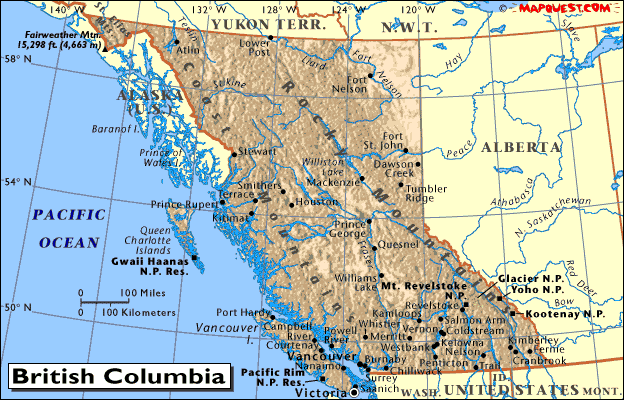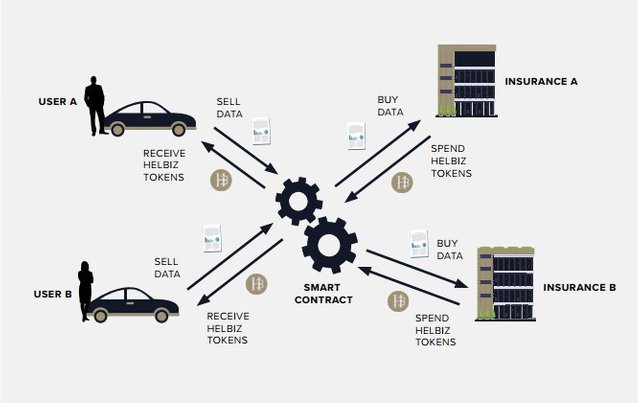Just How Big Will Car-Sharing Become? What the Data Suggests
If you live in a major city, you've no doubt witness the vast increase in car-sharing usage. Millennials increasingly have no need for their own car when a lot of their needs are within walking distance, and when public transportation is ample and adequate to get them where they need to go quickly and reliably. However, they still want a vehicle for the occasional trip to the suburbs, or to pick up some furniture at Ikea for example, to do errands, or for a day trip to the countryside or nearby beach.

Cars are expensive to own. On top of the capital cost of the car itself (plus interest or monthly payments if you don't own the car outright), insurance can get vary expensive in many jurisdictions, particularly if you're a younger and less experienced driver. Initially when I wanted to get my own car at 17, insurance quoted me over $10,000. And that was just for basic coverage (no collision, theft or fire). Then there's registration, maintenance, upkeep, and gas. Simply put the economics of actually owning a vehicle don't make sense unless you have the need to really use it enough to get your money's worth out of it. It's much better to rent when you need the vehicle.
The Problem
Usage of car-sharing right now is limited in it's ability to expand. Vancouver for example, is considered the 'Mecca' of car-sharing, at least in Canada. There are a grand total of 4 car-sharing programs: Zipcar, Car2Go, Evo, and Modo. Two of those companies are known as 'round-trip' car-sharing companies, where you have to return the vehicle to the same location you pick it up from. The other two are 'one-way' car sharing companies. Two of these companies are active in Victoria - British Columbia's capital. But outside of that, there's no car-sharing companies to be found at all in BC. In fact, these car-sharing companies little to no activity in Vancouver's suburbs either.
There-in lies the first problem. 4 companies should hardly make Vancouver a Mecca of car-sharing, particularly when there's little to no access in the suburbs. This forces suburban dwellers to have their own vehicles as well, as car-sharing isn't accessible for them.

What about towns outside of the Greater Vancouver Area? Hope? Penticton? Nelson? Salmon Arm? The countryside? Car-sharing is frankly never going to come to these places under its current structure. Why? The economics don't make enough sense. Car-sharing needs very high population density to work effectively, something only found in the density parts of municipalities. This is because car-sharing companies need to make significant investments to purchase vehicles, hire staff, handle legal & regulatory compliance, get parking agreements and storage, and so forth. This is why car-sharing is limited, and will remain limited under its current structure. Suburbanites & those who live in rural areas will need to continue to purchase their own vehicles, even if they have little to no use for it. And most of the time it'll won't be used. Right now, vehicles sit parked & empty 96% of the time. Given that a car is a depreciating asset which you're incurring lots of monthly costs for, that's a MASSIVE waste of money.
The Solution: Helbiz

Look at how Uber has decimated the taxi industry. That's what Helbiz is going to do to the car-sharing industry, but they're not a direct competitor to Uber. Besides being in different industries, Helbiz differs in a few ways. First, Uber, like traditional car-sharing companies is limited to which cities it operates in. It only operates in certain select cities, Vancouver not being one of them. Adding a new jurisdiction is a very expensive pain in the ass for them, as they need to amass a critical pool of both drivers and users in that city, in addition to forking out tens of millions of dollars in legal and compliance fees to get up and running. It's never going to be profitable or feasible for Uber to operate in smaller jurisdictions, just like traditional car-sharing companies.
In contrast, with Helbiz, there will be few to no limits on which jurisdictions they can operate in (unless banned by government authorities), and it will actually be PROFITABLE for them to operate in suburbs and rural communities. In most of the jurisdictions they'll be operating in they won't have any competition. But they'll also be operating in dense municipalities as well.
How are they able to do this? Well for one, inside investing and allocating company owned vehicles, it will be vehicle owners who do so, a massive cost savings for both parties. And it also of course allows those vehicle owners to earn money when others use their vehicles (cars, bikes, & motorcycles).
Helbiz is revolutionizing the car-sharing industry just as Airbnb has revolutionized home-sharing and accommodation. And they're using blockchain technology to do so.
Business Model

Helbiz will be using their Helbiz Mobility Platform to allow users to sell basic data to 3rd parties in exchange for Helbiz Coin (HBZ). No central authority is needed to verify payments, screen identities, user information, as this is all managed by the Helbiz Mobility Platform. Their smart contract verifies information about the user before ever allowing them to access the vehicle, such as their 'reputation score'. If the reputation score doesn't meet the minimum requirement set by the vehicle owner they will be denied access to use the vehicle. I won't go too much in the technical side, so if you'd like to read more, check out this more in-depth post I've done on Helbiz
Helbiz Token Sale
Helbiz has a token sale going on from February 15th 2018 until March 4th 2018. And you can be a part of it. Learn more here
Helbiz Official Channels and Links:
Tokensale Website: https://www.helbizcoin.io/
Whitepaper: https://goo.gl/eygwwt
Official Website: https://www.helbiz.com/
Twitter: https://twitter.com/helbizofficial
Medium blog: https://medium.com/@HelbizOfficial
Facebook: https://goo.gl/66VHRu
Youtube: https://goo.gl/h4bLhD
Linkedin: https://www.linkedin.com/company/helbiz/
Telegram Channel: https://t.me/helbizofficial